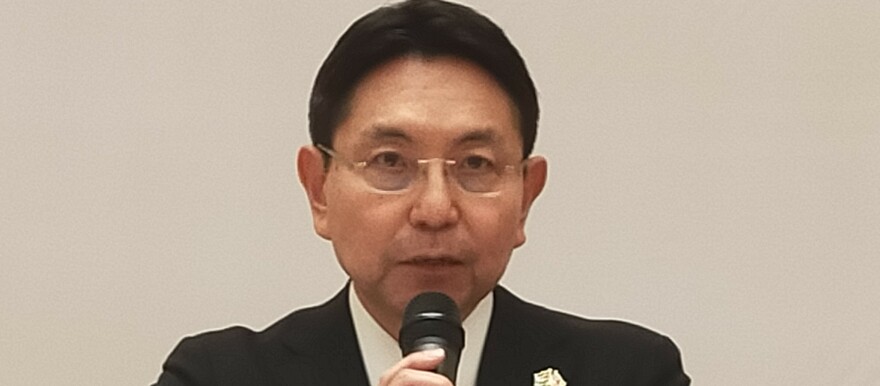The Japanese government, through its embassy in Juba on Tuesday, welcomed the call for an inter-party dialogue among peace parties in South Sudan.
A revitalized peace agreement was reached in September 2018, but South Sudan has never held elections as government officials have postponed them multiple times. Elections are scheduled for December 2024, but peace monitors and observers say the government hasn’t built up the structure necessary to hold free and fair elections.
Over the past few weeks, the United States imposed visa restrictions related to South Sudan’s political instability and repression of activists and dissidents.
Speaking during an event organized by the embassy to celebrate the 64th Birthday of His Majesty the Emperor of Japan in Juba, Odagiri Toshio, Japanese Ambassador to South Sudan said Tokyo supports efforts by all stakeholders to achieve free, fair, credible and peaceful elections in South Sudan.
He further said Japan has provided technical assistance to the National Election Commission (NEC) through the JICA Election Management Advisor and also invited members of the NEC and the State High Election Commission (SHEC) to Japan to further understand the dynamics of the election process.
The envoy said Japan, through JICA, provides technical cooperation to the South Sudan Broadcasting Cooperation (SSBC) by supporting the organization of the Election Reporting Core Team and providing training to the Union of Journalists in South Sudan (UJOSS) and the Association for Media Development (AMDISS).
He noted that Japan partners with many international organizations through various activities, which contribute to the development of the country in various fields, such as peacebuilding and humanitarian assistance.
He disclosed that about 14 Japanese nationals are working with a number of international organizations in South Sudan.
Ambassador Toshio said South Sudan can demonstrate its leadership in achieving peace, adding that this will have a wider impact on the whole of Africa and the world.
“For our part, we will do our utmost to support the ownership of the South Sudanese people, promote our partnership with the international community, and fulfill our commitment to the peace and prosperity of South Sudan,” he said.
For her part, Dr. Nadia Arop Dudi, Minister for Culture, Museum and Heritage said the bilateral relations between South Sudan and Japan has been strengthening and is continuously reaching new heights on annual basis.
She stated that the partnership is based on mutual respect, engagements and projects between our two countries.
Arop said the presence of Japan in South Sudan is enormously felt through many projects, adding that the country is very grateful for the generosity of the Japanese Government.
“Crossing the River Nile was only dependent on one bridge until we launched Freedom Bridge following its completion by JICA and the Embassy of Japan. The bridge ushered in a new era of connectivity internally and regionally. Our traffic movement has eased as a result and is a great backup route for our movement to areas around Jebel area,” she said.
“The Government of Japan is also constructing many smaller bridges across Juba. And recently, we signed Juba River Port as a mega project in our cooperation,” Arop added.
Minister Arop said the Government is also grateful over the commitment by the Government of Japan towards water projects along the River Nile in order to have clean drinking water in the city.
“While many projects are so crucial for the wellbeing of our citizens, the Government of the Republic of South Sudan is stretched by many priorities related to implementation of the Revitalized Transitional Agreement on the Resolution on the Conflict in South Sudan. We are exerting all efforts towards peace building and are grateful of support from countries such as Japan,” she said.
Minister Arop said South Sudan has great economic potential and should be ready to exploit it for the mutual benefit of the world in which sectors such as agriculture, mining, energy, oil and infrastructure are awaiting our investment community.
“Although South Sudanese are realizing dividends of peace process, which will lead to elections, I am therefore still calling upon the diplomatic community to continue supporting South Sudanese in various areas of need,” she said.




